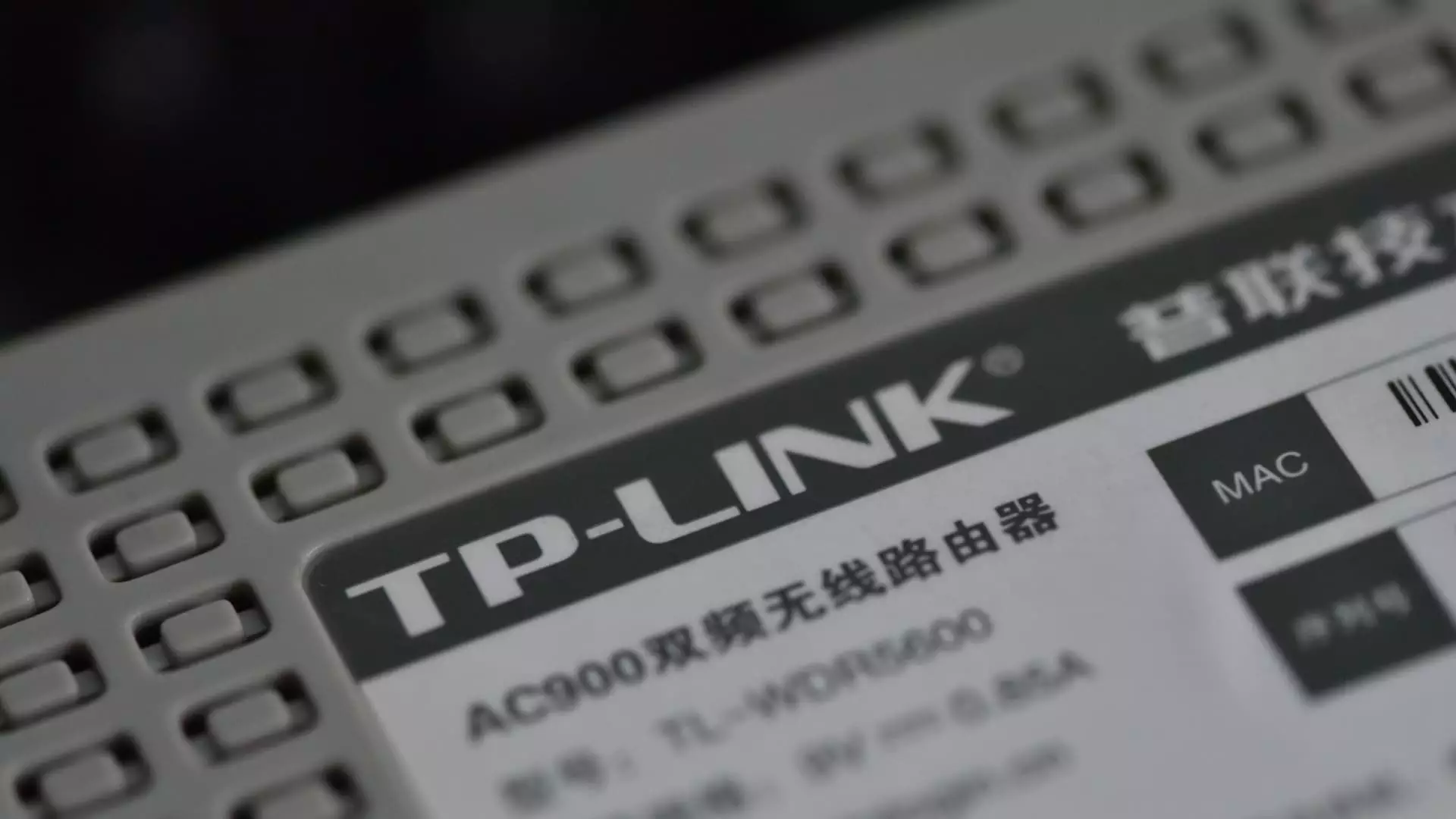As tensions between the United States and China continue to escalate, security concerns regarding technology used in American homes and businesses are coming under intense scrutiny. While much of the discourse has recently concentrated on potential bans of social media applications like TikTok, a more overlooked yet equally pressing threat exists in the realm of internet infrastructure—specifically, certain router brands. TP-Link, one of the leading router manufacturers in the U.S. market, has attracted attention from lawmakers and cybersecurity experts alike. The apprehension surrounding TP-Link stems from the brand’s potential ties to the Chinese government and the possibility of its products being weaponized against U.S. infrastructure.
The catalyst for the growing apprehension regarding TP-Link routers was a letter sent to the U.S. Department of Commerce by Representatives Raja Krishnamoorthi and John Moolenaar, highlighting what they deemed “unusual vulnerabilities” within TP-Link’s technology. This correspondence signaled the onset of a whirlwind of investigations aimed at uncovering the potential risks these routers pose not just to individual consumers but to critical infrastructure and national security as well. The representatives pointed out alarming patterns—specifically that small office/home office (SOHO) routers from manufacturers like TP-Link have been linked to cyberattacks executed from within the geopolitical battlefield of U.S.-China relations.
According to their letter, the requirement for compliance with Chinese law raises significant eyebrows. Given the Chinese government’s previously noted involvement in cyber espionage, the prospect of backdoor access through widely used devices strikes a cord of fear among legislators and constituents alike. Yet, despite these concerns, little concrete action has been initiated at the federal level, a fact that Krishnamoorthi acknowledges—calling the current state of the situation alarming.
With TP-Link reportedly commanding 65% of the router market in the U.S., its prevalence effectively ensures that a large segment of the population may be unwittingly utilizing products that could compromise their data security. The company’s strategy mirrors approaches adopted by other Chinese tech firms—namely, flooding the market with low-cost options to undercut local competition, thus gaining substantial market share. Given this background, experts are increasingly advocating for possible action to mitigate the security risks, specifically in government and military contexts.
There is a palpable sense of urgency among lawmakers who see an immediate need for potential bans on the use of TP-Link products in sensitive national sectors. The underlying philosophy is straightforward: if something poses a conceivable risk to national security, it should be removed from critical operations. While previous measures resulted in the removal of Huawei products, the process of isolating and phasing out TP-Link routers may be exceedingly complex due to their ubiquity across both public and private sectors.
Concerns about the vulnerability of TP-Link routers extend beyond the realm of cybersecurity professionals; everyday consumers should also be made aware of the implications associated with these devices. Experts suggest that unencrypted communication on these routers could leave personal data susceptible to external threats. While individuals may take precautions concerning sensitive banking information, it’s essential to recognize that other personal data, such as browsing histories or family details, might not enjoy the same level of protection.
As the debate intensifies, experts emphasize the importance for consumers to recognize vulnerabilities inherent in their technology choices. Cybersecurity professionals advocate for greater transparency among manufacturers regarding their security protocols and the encryption status of communications. Consumers deserve to know whether they are unwittingly compromising their privacy through seemingly innocuous devices.
The Path Forward: Awareness and Accountability
The ongoing discussion surrounding TP-Link routers serves as a microcosm of a larger national conversation regarding technology dependency and security breaches. While governmental action remains tentative, raising public awareness is imperative. Individuals need to engage in informed discussions about the security risks posed by their technology and take ownership of their digital safety.
As the landscape of cybersecurity evolves, it is crucial for consumers to balance the convenience of technology with the realities of potential risks. A proactive approach may include advocating for legislation that prioritizes national security, demanding greater accountability from manufacturers, and enhancing public awareness of the broader implications tied to device security. In an era of rampant cyber threats, it’s no longer about whether to hunker down in ignorance but how to stand vigilant for one’s own safety and security in a hyper-connected world.

